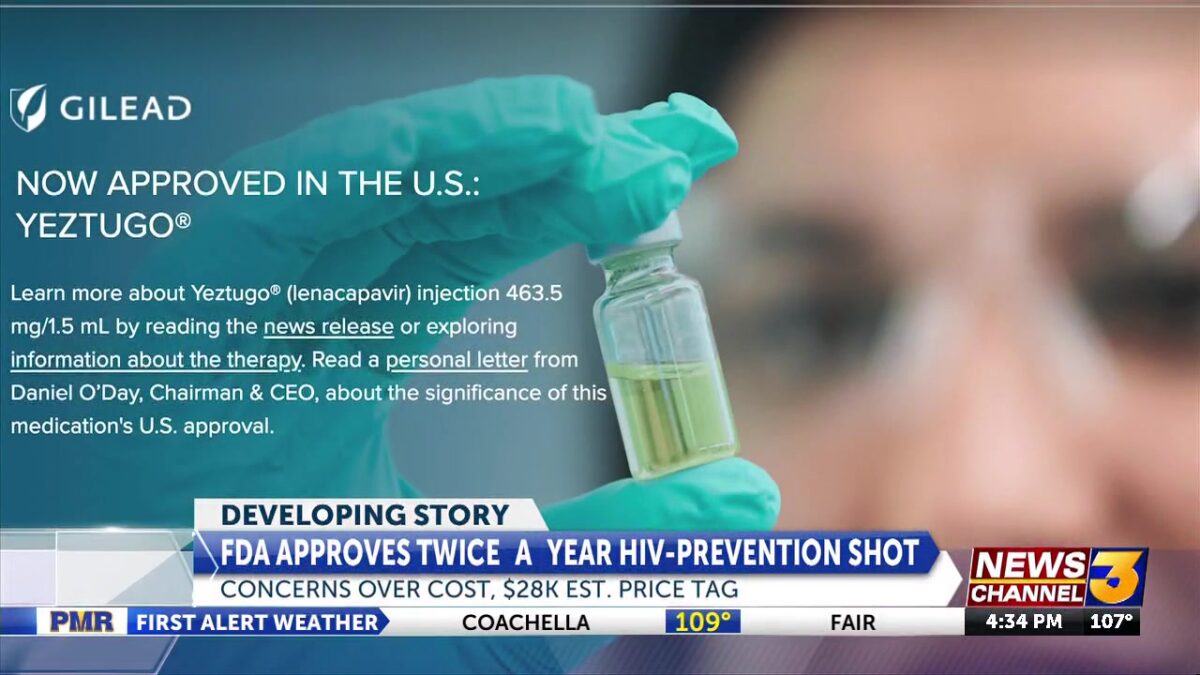FDA approves twice-yearly HIV prevention shot amid questions over cost, access

Garrett Hottle
PALM SPRINGS, Calif. (KESQ) The U.S. Food and Drug Administration has approved a groundbreaking HIV prevention shot that only needs to be taken twice a year. Medical experts are calling it one of the most significant advancements in HIV prevention since the arrival of PrEP.
The injectable drug, Lenacapavir, will be sold under the brand name Yeztugo and is manufactured by Gilead Sciences. In clinical trials, the shot reduced the risk of HIV infection by 96%—a result many doctors say is nearly unheard of in the fight against HIV/AIDS.
“It’s a great option,” said Dr. Phyllis Ritchie, founder and CEO of PS Test in Palm Springs. “People don’t have to take pills every day. But there are drawbacks.”
Among the biggest concerns is the price tag: about $28,000 a year at list price. Gilead says it’s working to expand access and affordability, but until insurance coverage catches up, clinics like PS Test say they simply can’t afford to offer it.
“We will offer it once insurance can be paid for it,” Ritchie said. “But until that happens, there’s no way. It’s just too expensive.”
The drug was tested in large international trials, including more than 5,000 young women in Africa and LGBTQ+ participants in the U.S. and abroad. In every group, Lenacapavir significantly outperformed daily pills.
But advocates warn that access gaps, insurance challenges, and federal funding cuts could block the benefits of the drug from reaching the people who need it most.
“In our political climate, people are trying to do away with mandating insurance companies to pay for preventive care,” Dr. Ritchie said. “And PrEP is preventive care. If that goes away—it’s a problem.”
Dr. Jon LaPook, chief medical correspondent for CBS, added that declining U.S. support for HIV prevention at home and abroad could undermine the drug’s potential impact.
“It’s a game changer on paper,” LaPook said. “Now it’s up to the clinics, the coverage, and the commitment to make sure this shot reaches the people who need it most.”
But funding decisions and insurance mandates could determine whether this latest medical breakthrough delivers on its promise or remains out of reach for too many.
For more information on Lenacapvir, click this link.